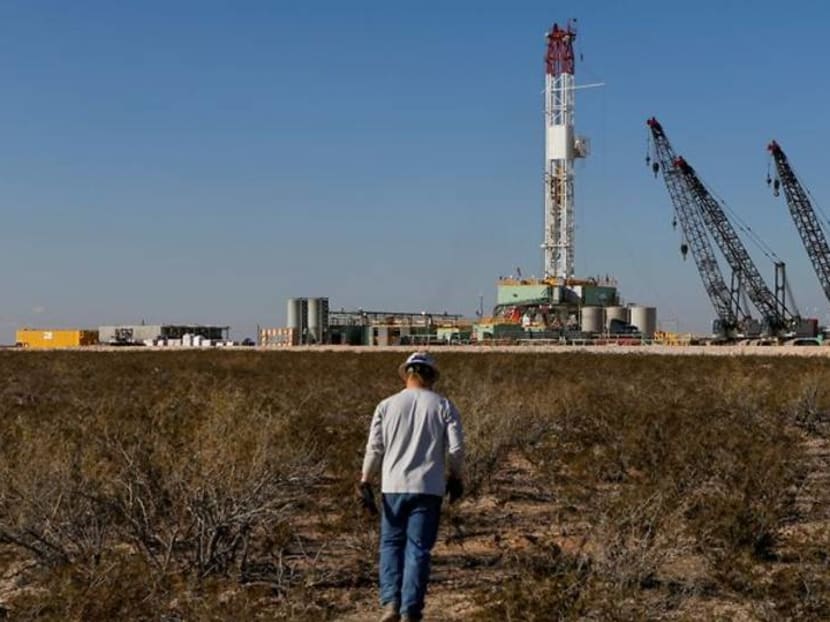Commentary: It's sad that graduates don’t want careers in oil and gas anymore
Many youths worry about spending old age in a warming planet and aren’t happy with the industries that helped heat it, says this writer.

LONDON: In the undying scene from the 1967 film The Graduate, the young Benjamin Braddock is at a gruesome party hosted by his parents when he is ambushed by the besuited middle-aged Mr McGuire.
Throwing an arm around Benjamin, McGuire guides him through the suburban splendour of the house to the pool.
“I just want to say one word to you. Just one word,” begins McGuire. Then, with the air of initiating Benjamin into the great grown-up secret: “Plastics.”
A silence falls. Benjamin (played by Dustin Hoffman) eyes McGuire as if he’s deranged and asks, politely: “Exactly how do you mean?”
McGuire urges, “There’s a great future in plastics. Think about it. Will you think about it?”
This classic scene of the 1960s’ generational clash – the materialistic old square versus the spiritual young baby boomer – resonates today. We too find ourselves in a burgeoning generational clash, albeit this time with Benjamin’s boomers as the old guard.
So far, the clash has mostly been over issues of money, climate and the amorphous concept of “woke”.
But, as in the 1960s, it’s also about something closer to home: Career choice. Some major professions – and the boomers in them – are becoming taboo for young people.
WIDENING GENERATIONAL DIVIDE
For decades from the 1970s, the generational clash lapsed. Boomers had been shaped by the 1960s, so when they started families, they didn’t want to be joyless anti-sex authoritarians like some of their own parents.
They tried to understand their children rather than merely discipline them. The parent-child relationship evolved into something akin to friendship.
But from 2008, the generational divide widened again. Younger people had their careers derailed by the financial crisis. Living in their parents’ homes, they watched once-stable middle-class professions such as academia, journalism and the civil service sink into precarity.
They disagreed with their parents on issues of racism, gender and immigration. And above all, they inherited a poisoned planet.
Climate change is the single biggest worry for 18- to 25-year-olds, according to a large-scale survey by Amnesty International in 2019. Older generations may pretend to care, but have shown by their emissions and voting records that they don’t.
If you worry that you’ll be spending your old age on a planet that has warmed 3 degrees Celsius, you won’t be happy with the industries that helped heat it. Demonising them also allows you to displace blame from your own consumption habits.
OIL AND GAS STRUGGLING TO HIRE
No wonder the oil and gas industry, despite its high salaries, is struggling to hire young workers. The number of business-school graduates choosing careers in oil and gas has dropped 40 per cent since 2006, partly for ethical reasons.
Forty-four per cent of 20- to 35-year-olds and 62 per cent of 16- to 19-year-olds found a career in the industry unappealing, said a survey by EY in 2017. The young were much less likely than older people to believe that oil and gas were good for society.
Other sectors – such as meat, aviation and indeed plastics – risk running into the same disapproval. Bankers and tobacco marketers already know how that feels.
To some degree, I do too. Almost no profession enjoys less public esteem than journalism. Some years ago, reporting from a working-class town in northern England, I found myself in a volunteer after-school club in a church basement.
Most of the volunteers were old ladies, and when I admitted to being a journalist, they turned away from me in horror, as if I had said I was a serial killer. The only one willing to talk to me said: “Don’t worry, dear. Everyone’s got to make a living somehow, don’t they?”
Ride-hailing companies are going green with electric vehicles and carbon offsets, but how far will their efforts go in slashing emissions? Find out from Andrew Chan, Managing Director of Transport at Grab on The Climate Conversations.
Painful as this was, it was easier to cope with because this was a tribal rather than a generational clash. In my liberal urban bubble, trust in media remains quite high. Outside, it’s low.
That divide is damaging to society, but is endurable on a personal level because I can get some respect by withdrawing into my tribe.
It’s harder for the oil executive. He (and this is a male-dominated profession) may find himself demonised by his own children.
That’s not very damaging to society because parents and children are held together by ties of love and money, but it can be personally devastating. How sharper than a serpent’s tooth it is to have a thankless child.
I once wrote a book that entailed interviewing a lot of old men. I found that my interviewee would often receive me in a room of his house that was a sort of tribute to his career – which, for a man of that generation, was almost synonymous with his life.
The room would be hung with his awards, photographs of his encounters with famous people, and portraits of his grinning descendants. The effect was to claim, in the words of Randy Newman’s mock-defiant song: “My life is good/My life is good/My life is good, you old bag.”
One side-effect of the unfolding climate crisis will be to deny that comfort to some of today’s career successes.







